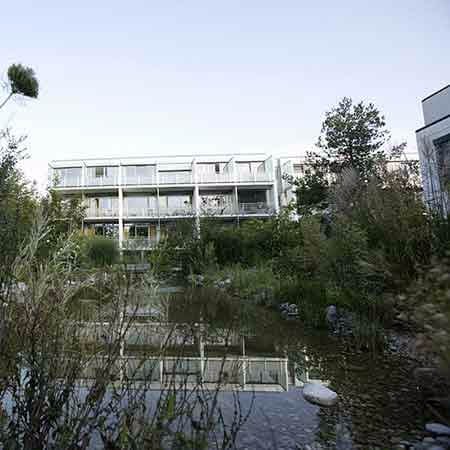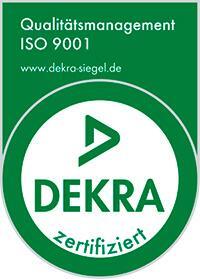Clear cell renal cancer is a pathological condition in which normal kidney cells are transformed into malignant (cancer) cells. Affected cells grow excessively, and malignant formations appear. In the course of their development, the pathological tissue may interfere with the functioning of the neighboring organs.
Content
- About kidney cancer
- Symptoms of clear cell renal carcinoma
- Treatment tactics
- Surgery for clear cell carcinoma
- How’s advanced cancer treated in Germany?
- Rehabilitation period
- The cost of treatment in the German hospitals
- Renal cancer treatment in Germany with Booking Health
About kidney cancer
Renal cell carcinoma belongs to the aggressive and unpredictable malignancies. In 25-30% of patients with renal cell carcinoma, there are distant metastases at time of diagnosis confirmation. After surgical treatment of patients with localized and locally advanced stages of the disease, the probability of recurrence and occurrence of metastases reaches 30%. The overall survival of patients with advanced clear cell carcinoma is not more than 5.5%, and that's why the problem of treatment of this group of patients is still urgent.
Malignant tumors of this type are characterized by invasive growth with destruction of surrounding tissues. In the case of kidneys, neoplasm development causes not only dysfunction, but also vascular damage and, consequently, chronic blood loss. This is fraught with anemia, blood clots stuck in the ureter and bladder, and acute urinary retention. The spread of atypical cells through the body leads to the formation of metastases. Secondary tumors may, in turn, localize in the respiratory organs, bones, and lungs.
Increased risk of disease is noted in patients with Hippel-Lindau disease, horseshoe kidneys, and acquired cysts that are accompanied by elevated levels of nitrogenous substances in the blood (uremia). The latter condition is the result of the impaired renal function.
Symptoms of clear cell renal carcinoma
Often clear cell renal carcinoma is detected by ultrasound or X-ray examination that is conducted for other pathologies. At its initial stages, renal cell cancer causes no pain or other symptoms. Therefore, the first signs of renal cell cancer often arise after the involvement of adjacent tissues or organs. The most typical manifestations are:
- The appearance of blood in urine (visible or determined by the laboratory tests)
- Pain in the lumbar region on the side or back
- Presence of a palpable round or irregular mass at the waist, under the ribs
- Swelling in the foot area, which may rise to the ankles and shins
- Elevated blood pressure that does not respond well to hypotensive medications
- Decreased red blood cell count, a drop in hemoglobin levels (persistent anemia)
- Severe weakness, constant fatigue
- A sharp decrease in appetite and, as a result, weight loss
- Fever without signs of a cold or other infection
If it is a man, there may be dilated veins in the scrotal area (so-called varicocele). If the right testicle is particularly affected, there is a high risk of a large tumor in the kidney area. Some people have almost no symptoms until the advanced stages of clear cell renal carcinoma.
Treatment tactics
Renal cell carcinoma is in many ways a "unique" malignancy. Renal cell cancer can appear at a fairly young age and grow very slowly up to a certain point, without manifesting itself. At a certain stage, patients with clear cell renal carcinoma go through a transitional stage of a sudden change in the "behavior" of the neoplasm that rapidly progresses and gives metastases.
Unlike the vast majority of malignant tumors, renal cell cancer is virtually insensitive to radiation, hormonal or cytostatic therapy. This often deprives physicians of a chance to treat patients with advanced forms of renal cell carcinoma more effectively. Perhaps the situation will change with the implementation of a new therapeutic approach, that mainly focuses on targeted therapy (drugs that specifically block tumor proliferation factors). However, this treatment of kidney cancer is rather expensive and not available to all people.
The only method that can cure patients with renal cell carcinoma today is radical surgery, which completely removes or destroys the malignant tumor. Depending on the size of the carcinoma and its location, surgery can be radical (kidney removal – radical nephrectomy) or organ-preserving (kidney resection). The surgeon decides which tactics (resection or removal of the kidney) will be the most suitable in each case based on objective factors (characteristics of renal cell carcinoma, the patient's health status, etc.).
Surgery for clear cell carcinoma
Treatment of most neoplasms of the kidney begins with the excision of the primary tumor along with the tissues it has affected. The goal of the surgery is to get rid of the maximal volume of tissues affected by the tumor, given the fact that they are located in close proximity. Even for patients with metastatic renal cell carcinoma, surgery improves the effectiveness of further drug treatment and can be performed at the onset of pathology along with general systemic treatment. For example, various trials have demonstrated that the life expectancy of patients with metastases is significantly longer if surgery is performed before conservative treatment.
Nephrectomy is a well-known and common operation. Hundreds of interventions of this type are conducted each year for both renal cell cancer and other pathologies. Even though it is a major intervention, the risks and possible health problems are defined as minor if the patients with renal cell carcinoma have no significant comorbidities, mainly heart disease and liver pathology. Fatal risks of surgery are about 1% for patients with advanced forms of pathology.
Complications can sometimes occur when a neoplasm invades the nearby vessels, or when the tumor spreads to the adjacent organs. Vascular surgeries with tumor thrombus extension take longer.
There are 2 main types of interventions for kidney cancer. In the case of radical nephrectomy, the entire kidney with surrounding fatty tissue, lymph nodes, and, in some cases, the adherent adrenal gland is excised.
Radical surgery is often performed because the majority of cancer cells are more likely to be removed this way. However, partial nephrectomy is a suitable alternative for patients with small tumors. Therefore, the size and localization of the tumor determine the choice of surgery. In addition, partial nephrectomy is chosen in patients with renal insufficiency or second kidney affection.
How’s advanced cancer treated in Germany?
Treatment tactics for patients with clear cell carcinoma at an advanced stage is determined by the characteristics of the primary tumor, the number, size, and localization of distant metastases. The patient's general condition and the presence of concomitant diseases must be taken into account as well.
Surgery is performed rarely but still is conducted when the primary tumor and metastases (if they are found in only one organ) are resectable. In such a situation, they can be removed. Formally, this leads to a cure, as all tumor cells are eliminated. But often after, some patients with metastatic renal cell carcinoma may experience a relapse, since the patients’ body may contain undetected microscopic atypical cells.
For advanced renal cell cancer, surgery may be performed if there are unresectable metastases, but the primary tumor in the kidney is still resectable. In this case, the surgeon will remove the main tumor, this will help improve the condition of patients. After such surgery, adjuvant targeted therapy or immunotherapy is prescribed.
Small cells in the brain may be removed using stereotactic radiosurgery. Some patients with liver metastases may be treated with intraarterial chemotherapy, radiofrequency ablation, and chemoembolization. Specific treatment is required for ascites.
If surgical treatment is impossible, immunotherapy is prescribed. Targeted drugs might help as well, taking into account the fact that renal cell carcinoma responds poorly to chemotherapy. Pain management is also prescribed with drugs from the NSAID group (e.g. ibuprofen, naproxen) and/or with opioid analgesics.
Some patients have the opportunity to participate in clinical trials. On the specialized websites, patients can find out what trials are ongoing and who can become a candidate.
Rehabilitation period
During the period of rehabilitation, patients undergo follow-up examinations in order to exclude cell carcinoma recurrence. Physicians will give specific recommendations about the tests required and explain how often they need to be done. Patients with certain hereditary syndromes or genetic diseases are at risk of developing cancer in the future and need additional screenings.
Patients with a kidney removed can lead normal, active lives. However, families must discuss the need for medical care and lifestyle modifications with the attending physician. Patients should have medical examinations at least once a year. Examinations should include blood pressure measurements, kidney function tests, and urine analysis. If deviations are found, patients should be referred to a nephrologist.
The cost of treatment in the German hospitals
Renal cancer treatment in Germany is rightly associated with high quality and reliability, and this explains the desire of foreign patients to undergo diagnostics and therapy for clear cell carcinoma in German hospitals, especially when it comes to the most complex diagnoses and receiving the most qualified assistance. And as a consequence, one of the most sought-after areas of medical tourism is cancer treatment in Germany.
As for the cost of treatment in German hospitals, the prices vary depending on the peculiarities of the diagnosis, the number of procedures required for treatment, the level of German hospitals, additional services the patient requires, etc.
The average prices for procedures are listed below:
- The cost of treatment with resection in the German hospitals starts at 11,865 EUR
- The cost of treatment with radiotherapy starts at 15,300 EUR
- The cost of treatment with chemotherapy starts at 3,469 EUR
- The prices for cancer rehabilitation start at 951 EUR
If you want to know what the price is going to be for your case, visit the Booking Health website and click the request button.
Renal cancer treatment in Germany with Booking Health
Booking Health assists in obtaining medical visas and selecting the best German hospitals for patients with oncology.
Booking Health supports patients in every aspect of cancer treatment in Germany. We book flight tickets, transfers from/to the airport, and accommodation for a patient and the accompanying person. Booking Health provides patients with qualified medical interpreters for consultations and communication with medical personnel. Booking Health also translates your medical reports. If your treatment takes too long, Booking Health will help you with the extension of visas. And of course, we are always in touch. We will always help, give advice, and support.
Fill in the request form on the Booking Health website to start your treatment.
Authors:
The article was edited by medical experts, board certified doctors Dr. Nadezhda Ivanisova and Dr. Sergey Pashchenko. For the treatment of the conditions referred to in the article, you must consult a doctor; the information in the article is not intended for self-medication!
Sources:
National Cancer Institute
American Cancer Society
MedlinePlus











